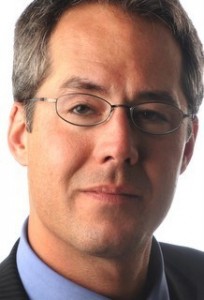 The new collaboration between the University of Denver and The Denver Post, where they set up a so-called “Fact Lab” must be one of the more stupid ideas we’ve seen recently. Not only have they set up a grading rubric for it that will never see any letters handed out for ads overall other than mostly “B’s” and maybe an occasional “C,” but to assume students—yes, even the very smart one— can set aside their own biases (let alone recognize they have any) is to believe in unicorns.
The new collaboration between the University of Denver and The Denver Post, where they set up a so-called “Fact Lab” must be one of the more stupid ideas we’ve seen recently. Not only have they set up a grading rubric for it that will never see any letters handed out for ads overall other than mostly “B’s” and maybe an occasional “C,” but to assume students—yes, even the very smart one— can set aside their own biases (let alone recognize they have any) is to believe in unicorns.
Take for example the students most recent attempt at being fact-checkers. Here they dissect the Steyer-led NextGen’s attack ad on Rep. Cory Gardner:
This NextGen ad makes three claims:
- Cory Gardner thinks he knows better than scientists, NASA, and the US Military when it comes to climate change.
Interestingly enough, just two weeks ago, a highly-respected scientist (and former Obama appointee to boot), Steven Koonin, wrote a 2,000 word essay for The Wall Street Journal on this very subject. Gardner’s position seems to fit with this scientist’s view. As Koonin wrote:
Even though human influences could have serious consequences for the climate, they are physically small in relation to the climate system as a whole. For example, human additions to carbon dioxide in the atmosphere by the middle of the 21st century are expected to directly shift the atmosphere’s natural greenhouse effect by only 1% to 2%. Since the climate system is highly variable on its own, that smallness sets a very high bar for confidently projecting the consequences of human influences. [the Peak‘s emphasis]
How could Gardner agree with all scientists when there are disagreements among the scientists themselves?
DU and The Denver Post go on to further embarrass themselves when they cite The Intergovernmental Panel on Climate Change as further proof how true NextGen’s errant claims on Gardner are:
In addition, the Intergovernmental Panel on Climate Change has concluded that the increased rate of climate change has been influenced by human activity.
Yet, Koonin himself uses the very same report to show how unsettled the actual science is:
We often hear that there is a “scientific consensus” about climate change. But as far as the computer models go, there isn’t a useful consensus at the level of detail relevant to assessing human influences. Since 1990, the United Nations Intergovernmental Panel on Climate Change, or IPCC, has periodically surveyed the state of climate science. Each successive report from that endeavor, with contributions from thousands of scientists around the world, has come to be seen as the definitive assessment of climate science at the time of its issue.
… For the latest IPCC report (September 2013)… uses an ensemble of some 55 different models… The models differ in their descriptions of the past century’s global average surface temperature by more than three times the entire warming recorded during that time… As a result, the models give widely varying descriptions of the climate’s inner workings. Since they disagree so markedly, no more than one of them can be right. [the Peak’s emphasis]
We have to believe the DU/Denver Post did not consider such possibilities when they said NextGen’s claim about Gardner was true.
The problem with most “fact-checkers” is that they believe themselves to be above the political fray; that they either have no bias, or are able to check their bias at the door. Such an attitude is more dangerous than a willingness to admit one’s bias.
That the self-proclaimed “fact-checkers” would allow themselves to be swept up in the liberals’ false narrative that everything about climate change is a settled science, shows just how utterly lacking most “fact-checkers” are. More false prophets who claim they are the purveyors of truth, just dressed up in 21st century garb.
